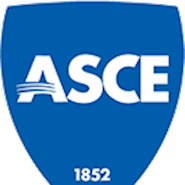ASCE has honored Philip J.W. Roberts, Ph.D., P.E., F.ASCE, with the 2022 Hunter Rouse Hydraulic Engineering Award for excellence in hydraulics, particularly the engineering aspects of ocean outfalls and water intakes, and density-stratified flows in lakes, estuaries, and coastal waters. This expertise includes mathematical modeling of such flows, field studies, and laboratory studies of turbulent mixing.
Roberts has made exceptionally significant contributions to modern hydraulic engineering through over 44 years of teaching and research. He obtained his doctoral degree from California Institute of Technology, and started a faculty position in Georgia Tech in 1978. His research focuses on environmental fluid mechanics and hydraulic engineering, especially in marine outfall design. He played a major role in ASCE Manual 97, Hydraulic Modeling: Concepts and Practice (2000).
Throughout his career, Roberts has conducted intensive laboratory experimental investigation of turbulent mixing, ocean outfalls, analysis of complex field studies, and mathematical modeling of turbulent dispersion and transport. His innovative research on diffuser mixing process won ASCE’s Collingwood Prize in 1980. He was one of the only two Distinguished Scholars in NOAA’s Oceans and Human Health Initiative, in which he conducted research on the hydrodynamics of pathogen transport in coastal waters. He was also the UPS Foundation Visiting Professor at Stanford University from 1993 to 1994. EPA has adopted Dr. Roberts’ mathematical models and methods for marine outfall design.
He is currently the co-chair of IAHR/IWA Committee on Marine Outfall Systems. Roberts retired from Georgia Tech four years ago, and now consults on various projects relating to water quality in marine environment, for example, the design of desalination facilities. He is a fellow of ASCE and has served as associate editor for the Journal of Hydraulic Engineering (1987-1992).
The Hunter Rouse Hydraulic Engineering Award is presented, upon recommendation of the Executive Committee of the Environmental & Water Resources Institute Hydraulics and Waterways Council, to a distinguished person who will deliver the Hunter Rouse Hydraulic Engineering Lecture at an appropriate meeting of the Society.



